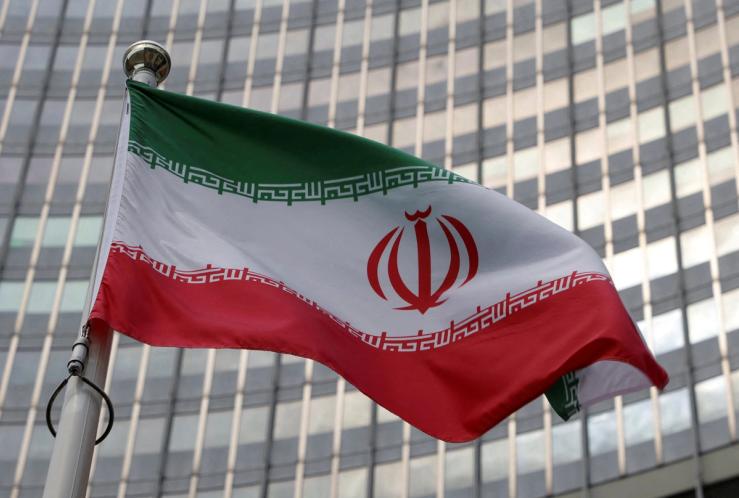The News
Iran’s growing stockpile of near-weapons grade nuclear material is stoking fears among current and former United Nations inspectors that the turmoil in the Middle East offers Tehran an opportunity to sprint towards achieving a latent atomic weapons capability.
The UN’s nuclear watchdog, the International Atomic Energy Agency, released two confidential reports this week, which were viewed by Semafor, that document Iran’s growing accumulation of uranium enriched to 60% purity – enough feasibly for three bombs if Tehran processed it further.
The Biden administration, over the summer, looked to have reached a compromise with Iran on the nuclear program, at least through the 2024 election. But Tehran’s recent advances and obfuscations risk bringing it back to center stage on the U.S. campaign trail while the war in the Middle East continues to boil.
In this article:
Know More
Over the past two years, Iran’s government has removed many of the cameras the IAEA uses to monitor Tehran’s nuclear facilities following the Trump administration’s decision in 2018 to pull out of the landmark nuclear agreement reached between Iran and world powers. Iran this year also took steps to block IAEA inspectors from conducting their work inside the country. And the IAEA says Tehran has repeatedly failed to explain the presence of undeclared nuclear materials at two Iranian sites.
“The Director General reiterates that the outstanding safeguards issues…need to be resolved for the Agency to be in the position to provide assurance that Iran’s nuclear program is exclusively peaceful,” IAEA chief, Rafael Grossi, wrote in one of the reports viewed by Semafor.
Iran is now the only country in the world enriching uranium to 60% that doesn’t have a declared nuclear weapons program. Uranium enriched to 90% purity is considered weapons-grade.
The IAEA’s Board of Governors convenes in Vienna next week, when it could censure Iran for its non-compliance. But U.S. and Western officials are skeptical the UN can effectively pressure Tehran on its nuclear advances given the organization’s deep divisions. Director-General Grossi and the IAEA’s board have the power to refer Iran to the Security Council to face potential new sanctions. But Russia and China almost certainly would veto such a measure, these officials said.
Outside nuclear experts worry Iran could exploit these divisions at the UN, and the turmoil in the Middle East, to make even further advances on its nuclear program.
“They can sprint to 90%” and have almost a latent nuclear weapons capability, Olli Heinonen, a former chief IAEA weapons inspector, told Semafor. “They don’t need to build and manufacture the nuclear weapon, because they have the design.”
Heinonen, a distinguished fellow at the Stimson Center, noted that Iran could justify increasing its enrichment on the grounds that the material would be used for medical purposes or for Iran’s stated nuclear submarine program. “There’s nothing much [for the IAEA] to say because under the [Nuclear Nonproliferation Treaty], it’s legal.”
Earlier, this year, the IAEA found traces of uranium enriched to 84% inside Iran, which Tehran said was done by accident.
Jay’s view
The Biden administration’s diplomacy with Iran seemed to be making progress — until the war in Gaza began.
U.S. and Iranian diplomats, through the mediation of Qatar, had agreed on taking a number of complex steps to cool tensions between the two sides. These included the swapping of prisoners held in each other’s capitals and the U.S.’s approval for South Korea to release $6 billion in frozen Iranian oil revenues. Washington also greenlighted Baghdad to release another $10 billion of Iranian revenues. In return, Iran was expected to curtail its levels of uranium enrichment and agree to greater cooperation with the IAEA.
But the war in Gaza, and Iran’s support for Hamas, has reignited tensions between Washington and Tehran. Iranian-backed militias across the Mideast, including Yemen, Syria and Iraq, have launched nearly 50 missile strikes on American and Israeli targets since Hamas attacked southern Israel on October 7. And the Biden administration has fired off some retaliatory strikes against Iranian proxies and suggested it was refreezing the $6 billion. The status of the $10 billion in Iraq is also uncertain.
Iran’s nuclear program could be the next card Tehran plays against Washington, as the ability of the two countries to negotiate diminishes. “The U.S. administration cannot arrive at an open, above the water, sort of an agreement with Iran, that can sort of sidestep everything that’s happened since October 7,” said Vali Nasr, a scholar on Iran at Johns Hopkins SAIS and a former U.S. official. “This is in many ways out the window, and similarly for them [Iran].”
The View From Iran
Iranian officials in recent weeks have rejected the IAEA’s claims of non-compliance and stressed that the country’s nuclear program remains peaceful. They’ve also dismissed the IAEA’s findings that undeclared nuclear materials were found at two Iranian sites, claiming the intelligence was fabricated by Israel. And they’ve stressed that Iran isn’t bound by certain IAEA verification protocols, now that the U.S. is no longer party to the 2015 international nuclear agreement, known as the JCPOA.
“The Islamic Republic of Iran, with the highest number of safeguards inspections of its peaceful nuclear program, has a commendable record of cooperation with the IAEA,” Iran’s ambassador to the UN, Amir Saeid Iravani, said earlier this month in New York, according to Iranian state media. “There is no proof of diversion of declared nuclear material or activities in Iran.”
On Tuesday, Iravani took part in a conference in New York aimed at creating a Middle East zone free of weapons of mass destruction. He used the event to cast Israel as the greatest nuclear threat to the region and the world and in need of coming into compliance with the IAEA. “On the other hand, Israel’s unwarranted refusal to engage in this crucial conference, bolstered by unwavering U.S. support, is untenable,” the diplomat said. “Such reluctance and external backing hinder vital discussions for global security.”
Israel is believed to have a stockpile of undeclared nuclear weapons, which successive U.S. administrations have never acknowledged.
Notable
- Israel’s spy agency, Mossad, stole tens of thousands of documents allegedly tied to Iran’s secret nuclear weapons program from a Tehran warehouse in 2018. It’s referred to as the “Atomic Archive.”


